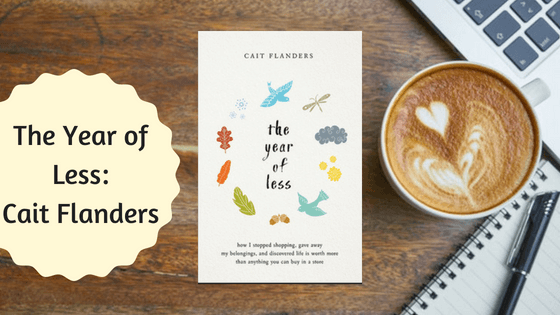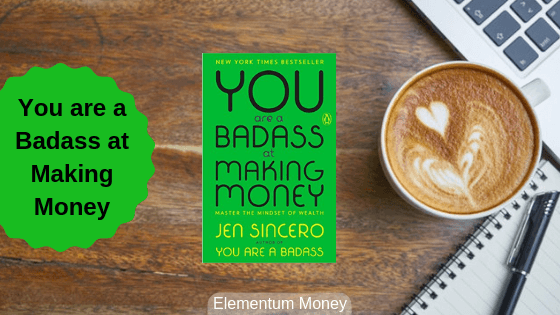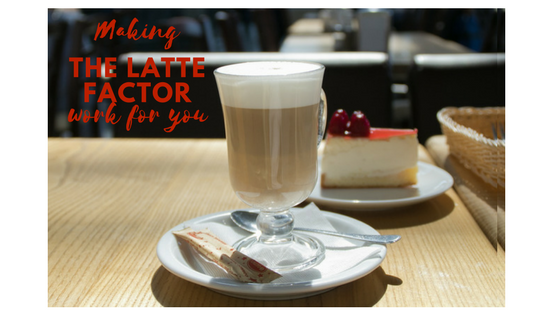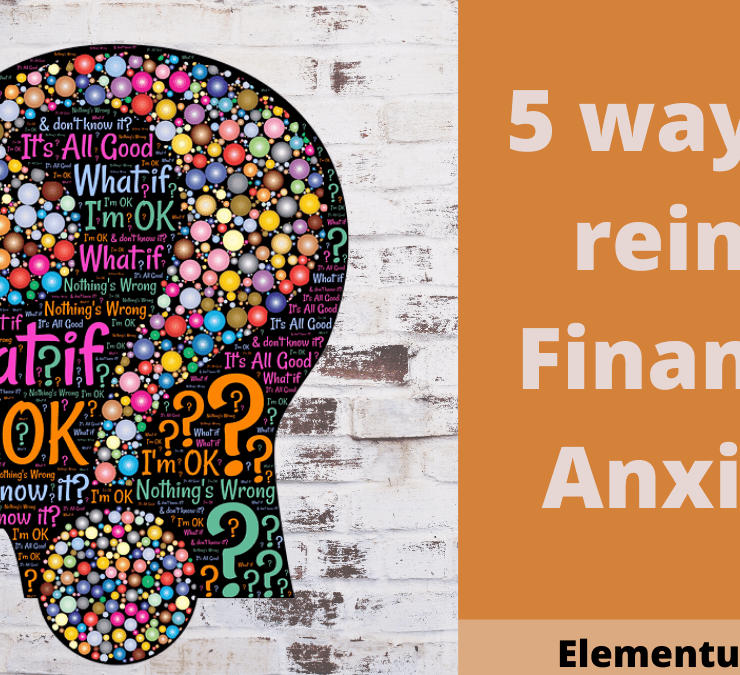The book that I read this time for the Personal Finance section of Book Club was very different. In all honesty, The Year of Less by Cait Flanders is more a memoir than a Personal Finance book. But the book starts on a Personal Finance premise and when you look through the really personal details of her life, there are a lot of lessons to be picked up about how emotions impact our money decision.
Background
Caitlin or Cait Flanders is the author of the book who pens down her journey of the year when she decides to go on a shopping ban. Thankfully, it’s not as extreme as it sounds, making it far more practical and doable. This was also not her first such journey where she realized the need for drastic changes, having been preceded by an alcohol ban and a debt repayment challenge. She kept herself accountable to making these changes by building a community through her blogs, initially called Blonde on a Budget and recently re-christened to Cait Flanders.
The ban allows for groceries and supplies (when they finish) and to replace anything if the original item is thrown out as well as an approved shopping list for things she knew she needed. What it did not allow her were the excesses like takeaway coffee or clothes that she did not need or even replenishment of supplies that were yet to run out.
Along with the shopping ban, Cait also embarked on decluttering her house. What I thought was really cool was that she assigned numbers to it. So, when she went through each and every room, she numbered the items that she had and the number of items that she decided to hold on to. So, every chapter starts with some cool stats on the months she had remained sober, declutter percentage and her confidence of completing the challenge.
Below are some of the points that came out really clearly for me from the book:
1. No matter how far you might have strayed, you can always make changes for good
In all honesty, Cait was still saving 10{76b947d7ef5b3424fa3b69da76ad2c33c34408872c6cc7893e56cc055d3cd886} of her salary, which is more than a lot of us can say. However, you hear in her writing how the realization has actually hit of what the path should have been and what it actually is. She is transparent in her memoir and this aspect is most clearly seen when she talks about her alcohol intake and the subsequent ban.
2. You can find your aha moment in the most surprising circumstances
Cait talks about how her aha moment comes when she is about to preach to her sister, younger by eight years on not being able to save more than 20{76b947d7ef5b3424fa3b69da76ad2c33c34408872c6cc7893e56cc055d3cd886} of her salary while living at home. She realized she came across as a hypocrite and it was a good mirror to her own spending patterns, which sowed the seed for the shopping ban.
Her declutter aha moment came in an even more unpredictable manner. While making a black bean salad for herself, when she was not able to find a single can opener in her pile of things, leaving her hungry and frustrated, she knew she needed to embark on purging her material possessions.
3. It’s good to take stock of the situation early than let it fester
Cait talks about how she let her debt and her clutter pile up, which got worse before she acknowledged the situation and took stock. For me, this quote from the book summed it up so well:
One thing debt and clutter have in common is that as soon as you start letting it pile up, it can be harder and harder to see your way around it.
It’s easier to be an ostrich and dig our head into the sand hoping our ignorance will drive away the problem, but that just compounds it further.
4. Even the good things and good intents in life can lead to clutter
No one can deny the positive aspects of a book. Hell, even I dream of having a home library some day. Books, it turns out is or was a vice with Cait as well. In the declutter round of her home, she realised she had a habit of buying many books that she often ended up not reading at all. The shopping ban thus extended on to books and even with the decluttering a lot of the unused books went out.
Similarly, the “just in case” reason can lead to so much clutter and I can vouch for it from personal experience. Just in case is what has led me to not throw out dresses I once fit into just to be able to use them when I do indeed lose weight. “Just in case” is what makes me say yes to recycled paper notepads even though I might not end up using it. Just in case is an affliction that definitely leads us to hoard on way too many things that we can easily do without.
Nostalgia is an emotion which personally makes me difficult to let go of things. My family is big on gifting especially since we are far-flung and most of our meetings end up with us going with gifts for each other. So, a lot of things that might have even be used or gifted clothes that no longer fit me still find a place in my house and wardrobe.
5. Media created implications of the term shopaholic are misleading
Cait made a very valid observation about how:
“When you hear the word shopaholic, you might picture a woman in high heels carrying handfuls of shopping bags full of clothes, shoes, and makeup.”
It is a stereotype created by and advocated by different media vehicles, most notably the Shopaholic series of books. It makes all the other possible excesses so harmless when you do not relate to yourself with this image. If you don’t spend on clothes, shoes or makeup choosing instead to live beyond your means by splurging on eating and drinking binges and maybe expensive unaffordable gadgets, does that make you any less of a shopaholic?
6. We often shop to hide deeper gaps
Shopping and money are not as easy as a linear number game. It is often a reflection of deeper issues in life and problems that we are using shopping to hide from. We all feel that glow of happiness from buying and using new things. However, how long that glow lasts is a factor of how meaningful the purchase was.
For instance, Cait very poignantly talks about how her ex-boyfriend used his car as a means of controlling her and after the break-up buying a brand new car became a very important means of asserting her independence. It was not about simply financing $15000 for a new car that she might or might not need but more about a visual reminder of the independence from her ex-boyfriend.
7. Social acceptance is one of the reasons that we hold on to bad habits
Cait talked about how a lot of her friendships and social circles were based on doing things together, including things that she was now trying her best to stop. As she publicly started on her journey to stop doing those things, her relationships which had earlier been built on doing those very things started showing signs of strain.
Think about it… How many of us indulge in social drinking? How many of us meet our friends at the mall and go shopping together? Most of the times I meet my friends over food and binge eating is a highly potential activity. If one of the people in the group tries to withdraw from any of these activities, there is enough pressure to not have that person get away. In fact, I myself am guilty of trying to have my team member have at least one drink when we go out even though she insists on not drinking alcohol.
Cait talks about her surprising discovery that shopping was one of the things that seemed to be a glue in some of her social circles. While she didn’t say anything when some of those friendships faded, I thought the question in her head was quite pertinent:
I don’t care that you still shop, so why do you care that I don’t?
8. It is ok to falter on the path of reversing a bad habit, you can always get back on track
Cait talks about one instance of going online to buy an e-book reader for a blog reader giveaway. She talks about how she gets tempted to buy one for herself even though it’s not on the approved shopping list and places the order for it. She blocks out in the process of placing the order and just doesn’t remember.
She could always go down the path of self-recrimination and regret while giving up on the challenge altogether calls up her friend Emma who calms her down and tells her to cancel the order.
The point is it is human to slip up when you are on the path to revoking tempting and addictive bad habits. What really marks it a success or a failure is how soon you are able to shake off the incidence and go back to following the rules one step at a time.
9. Consumerism finds a way in our traditions
How many of our festivals involve gifting? Christmas being the biggest one the world over. But, even in India, there is Diwali where gifting is rampant, though traditionally it started with the exchange of homemade sweets and snacks with friends and family. Then there is Raksha Bandhan where the brother is supposed to gift his sister in return for the thread of protection that she ties on to him.
With time, brands have happily latched on to the idea of these occasions and made them bigger than life. Small harmless gifting traditions have now changed to big consumerist festivals.
As for the tradition of gifting, I think Sheldon puts it perfectly in Big Bang Theory:
Oh, Penny. I know you think you’re being generous, but the foundation of gift giving is reciprocity. You haven’t given me a gift. You’ve given me an obligation. The essence of the custom is that I now have to go out and purchase a gift of commensurate value and representing the same perceived level of friendship as that represented by the gift you’ve given me. It’s no wonder suicide rates skyrocket this time of the year!
Find ways to make the idea of gifting comfortable for everyone involved, rather than making it an unaffordable obligation.
When you sift through the personal aspects of Cait’s life that she details out in her book, there are a lot of valid insights about the emotional aspects of money in our lives. If you still think, money holds a very rational place in our lives, this is one book you must read to get a great view of the emotional aspects of money.
Have you read this book? What did you think of it? Let me know in the comments below.





Leave a Reply